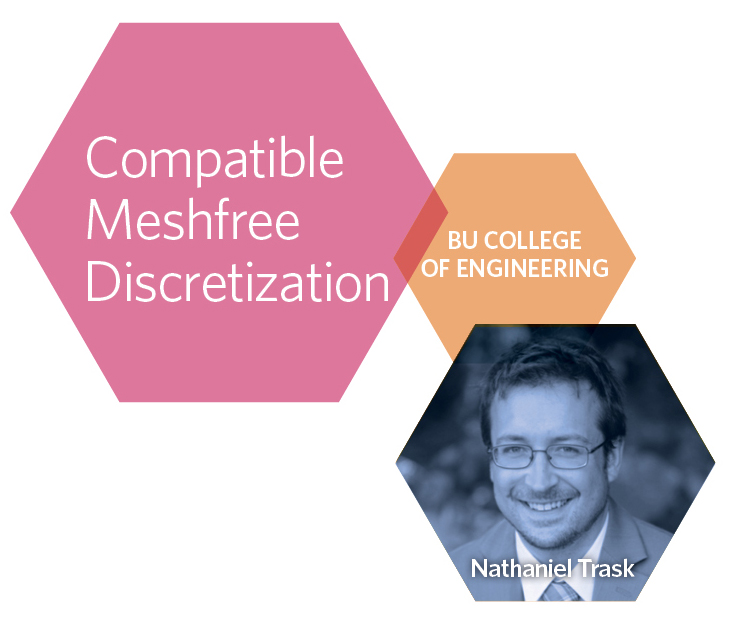“Compatible Meshfree Discretization”
Nathanial Trask, Sandia National Laboratories
When:
Thursday, January 31st 2019
Networking Reception, 10:45am-11:00am: Seminar 11:00am – 12:00pm
Where:
BU Hariri Institute for Computing, 111 Cummington Mall, Boston, MA, Room 180
Abstract: Spatially compatible discretization broadly encapsulates discretizations of PDEs possessing mimetic properties of continuum operators, such as conservation, maximum principles, H(div)/H(curl) – conformity, or discrete preservation of an exact sequence. The lack of topological information classically provided by a mesh, meshfree methods have struggled to obtain these properties which have proven critical to the modern solution of PDEs. In this talk, we will present an overview of meshfree work being done at SNL before introducing two recent projects. In the first, we show how a graph may be used as a surrogate for a mesh to obtain a meshfree discretization of conservation laws possessing discrete local conservation principles that have historically eluded meshfree techniques. In the second, we demonstrate recent work using meshfree discretization’s of non-local models for mechanics and transport, illustrating their ability to naturally handle transport and mechanics problems involving fracture and heterogeneous microstructure.
About the Speaker: Nat Trask is a senior member of technical staff at the Center for Computing Research at Sandia National Laboratories. His research is focused on the development of meshfree discretizations and approximation theory for problems related to multiphase flows, fracture mechanics, climate problems, material science, and plasma physics. He is the PI of the ASCEND project for nonlocal discretization, and a co-investigator of the Physics Informed Learning Machines (Philms) DoE center. Prior to converting to staff, Nat did his postdoctoral research at Sandia under the NSF-MSPRF program with Pavel Bochev. Before joining Sandia, Nat completed a PhD program in the Division of Applied Mathematics at Brown University under Martin Maxey and George Karniadakis, and a masters program in the mechanical engineering department at UMass: Amherst under David Schmidt.
